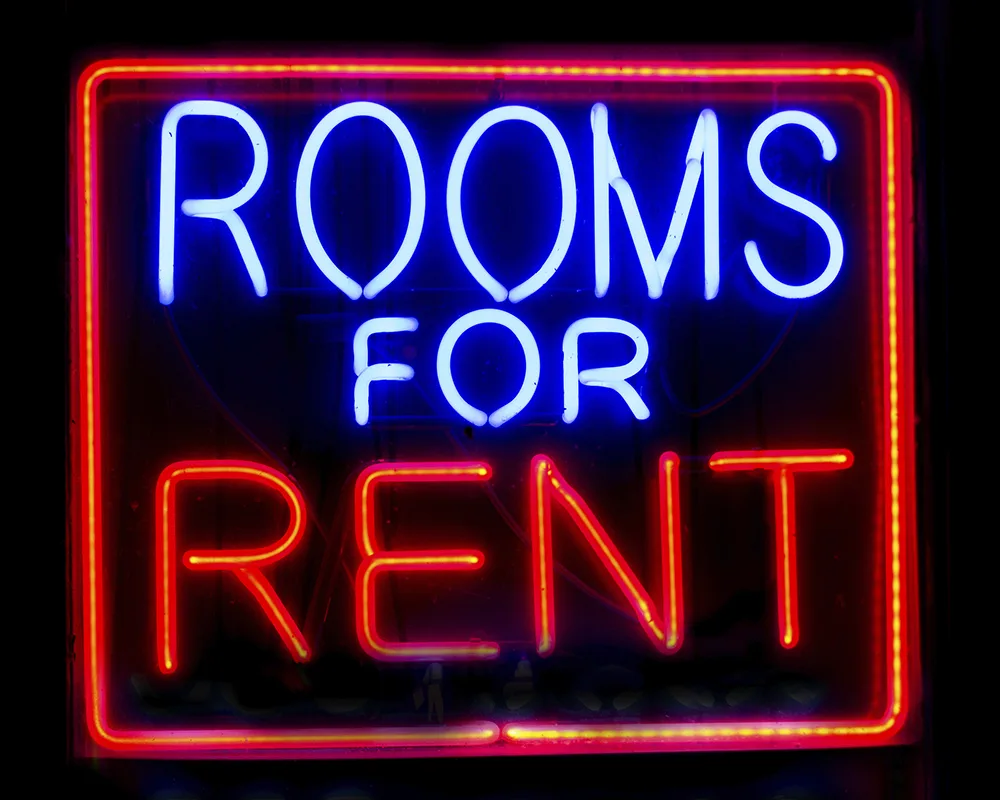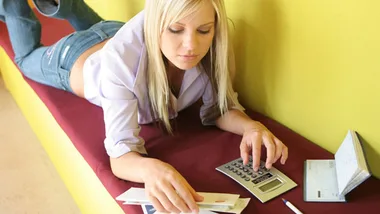If you have a spare room or two, granny flat or studio, why not put it to work. Perhaps your home feels empty after the kids have moved out or there’s a room full of stuff you no longer need. The spare room is a cashbox and it is a way to rev up your savings or pay off your mortgage faster.
It has never been easier to unlock an income from your unused rooms. The internet has helped foster a new vibrant economy, called the sharing economy.
Who would have thought that the idea of renting a room to a perfect stranger would catch on? Yet it certainly has. Increasingly I come across micro entrepreneurs who are renting rooms to students or backpackers or middle-class, baby boomer travellers. Or they have moved out of their apartments or home and in with friends or family, listing them on short-term accommodation websites such as stayz.com.au. The trend is spreading and I am on the verge of giving it a go.
All around the world people are renting out space. Take Airbnb, which lets travellers book beds, rooms, houses, boats, treehouses and even castles on a nightly basis. The service lists around 500,000 properties, operated by 350,000 hosts in 192 countries and 34,000 cities.
Sydneysiders earned $214 million from Airbnb guests over 12 months until July 2013, according to a study by BIS Shrapnel for Airbnb. Some 46 per cent of Airbnb hosts earn at or below Sydney’s median household income, 48 per cent of Airbnb hosts say Airbnb helped them stay in their homes and 60 per cent of hosts use Airbnb income to pay their rent or mortgage. BIS Shrapnel found that while the majority of Airbnb Sydney hosts are employed, many struggle to make ends meet.
While people rent out space primarily for income, they also like the interaction with travellers. The world comes to you when you rent out your space.
Brian Chesky, a co-founder of Airbnb, recently told The New York Times, “There is a whole generation of people that don’t want everything mass produced. They want things that are unique and personal.”
There is a huge incentive to provide a welcoming experience. Travellers staying in short-term rental accommodation can be brutal in their online rating and feedback if they don’t enjoy the accommodation and their stay.
Foreign students want an authentic experience, too. Many prefer to stay with a family – it helps them learn English faster and they want to interact with locals. “We are always on the lookout for host families,” explains Ross Sands, NavitasEnglish ELICOS director, student services and experience.
There were 526,932 full fee-paying international students on student visas as at the end of 2013, according to the Australian government. Some 124,603 were learning English.
Navitas placed 1900 homestays in 2013. It visits the family and inspects the property. Families must pass a security check and can be single people, families with kids or retirees. Navitas matches up the hosts with the students’ requests. Some hosts specify gender while some students request no pets or small kids. The maximum rooms you can rent is three rooms in a house.
What do you need? All you need is a spare room with a bed, wardrobe, desk and lamp plus provide breakfast and dinners as well as lunches on the weekend. “As much as possible we like the student to be with the family,” says Sands. Families are expected to show them around and explain public transport.
What is the cost to you? Student homestays typically don’t charge any fees. Airbnb charges around 12 per cent commission (3 per cent from the host and 6 to 12 per cent from the traveller). It takes photos of your space, runs the bookings and website. It provides insurance cover of $1 million. The money is paid within 24 hours of your guest checking in.

TAX ISSUES
If you are renting out a room, the rental income will usually be taxable. You should be able to claim a tax deduction for costs such as insurance and depreciation of furniture and fittings in the rooms available for rental, as well as making a claim for part of your utilities, rates and water bills.
The family home is generally exempt from capital gains tax (CGT) but if you rent out a room, part of any profit on the sale of the property may be liable to CGT, payable on a pro-rata basis for the percentage of floor space rented out.
A good tip is to get the property valued before you start to rent out the room, since CGT will only be due for the period the room is used to produce income. By comparison, letting a room for student accommodation can be non-taxable, provided you are only covering your costs rather than making a profit. These arrangements are usually made through an educational institution for foreign students, with the amount paid set by the institution to cover food, laundry and other costs.
The Australian Taxation Office (ATO) describes these arrangements as “non-economic rentals’’, but hosts are advised to get some sort of agreement in writing from the ATO to give certainty to their position, since issues can arise where the ATO regards the level of board as excessive.
If you’re letting a room out for B&B, your tax treatment will depend on factors including what you charge, what services you provide, where you advertise and the regularity of income. If the B&B is designed to make a profit, income tax will be payable.
Again, CGT on the sale of the property will be an issue because the residence exemption won’t apply to the part which is rented, but if you are running a commercial venture you may be able to claim small-business CGT concessions.
Commerciality is assessed on such things as regularity of bookings and number of rooms available, so getting professional advice is a good idea.
CHECKLIST
- Do you have public liability insurance? You need to cover your liability if you are found to be legally responsible for personal injury or damage to their property.
-Does your council have a policy about short-term rentals?
Does your body corporate allow short-term rentals? Some apartment blocks don’t.
Do the sums. How much will it cost to set up your space for rent? Include utility bills and food.
Organise back-up to help with cleaning, cooking, driving and co-ordinating with the guest on when to pick up the key.
Be prepared for higher maintenance bills when your home is used more intensively.
A version of this article originally appeared in The Australian Women’s Weekly’s How Busy Women Get Rich 2014 issue.
You may also be interested in this video: Did Kristin Davis just confirm another Sex And The City movie?



